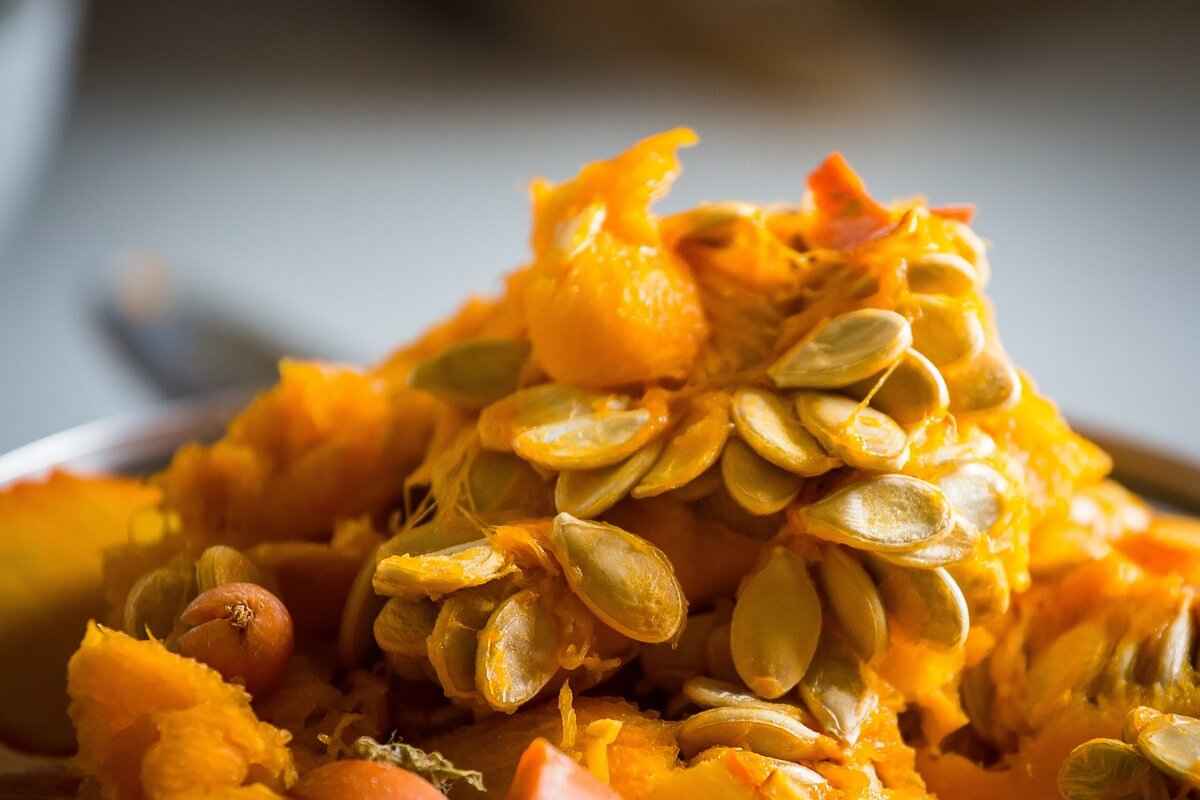This article delves into the numerous health benefits of chia seeds, emphasizing their impressive nutritional profile and the ways they can improve overall wellbeing. By understanding how to incorporate these tiny seeds into your diet, you can unlock a wealth of health advantages.
Chia seeds are small black or white seeds harvested from the Salvia hispanica plant, native to Central America. These seeds have been a staple in ancient diets for centuries, valued for their rich nutrient content.
Chia seeds are often classified as a superfood due to their exceptional nutrient density. They are packed with:
- Omega-3 fatty acids
- Dietary fiber
- High-quality protein
- Essential minerals such as calcium, magnesium, and phosphorus
This unique combination makes them a fantastic addition to any diet, supporting various aspects of health.
The high fiber content in chia seeds plays a crucial role in promoting digestive health. They help regulate bowel movements and prevent constipation by absorbing water and forming a gel-like substance in the stomach. This not only aids in digestion but also contributes to a healthy gut microbiome.
Chia seeds can be a valuable ally in weight management. Their ability to absorb water and expand in the stomach creates a feeling of fullness, which can help reduce overall calorie intake. Incorporating chia seeds into meals can help curb cravings and support weight loss efforts.
Rich in omega-3 fatty acids, chia seeds offer significant heart health benefits. They can help lower cholesterol levels, reduce inflammation, and promote overall cardiovascular health. Regular consumption of chia seeds can contribute to a healthier heart and lower the risk of heart disease.
Chia seeds may assist in stabilizing blood sugar levels. Their high fiber content slows down the absorption of sugar into the bloodstream, which is particularly beneficial for individuals managing diabetes. This can lead to better blood sugar control and reduced insulin spikes.
Chia seeds are an excellent source of essential minerals such as calcium, magnesium, and phosphorus, making them crucial for bone health. Regular consumption can help maintain strong bones and may reduce the risk of osteoporosis, especially in individuals at higher risk.
Athletes often turn to chia seeds for their ability to provide sustained energy. The combination of carbohydrates, protein, and healthy fats in chia seeds can enhance athletic performance, making them an ideal pre- or post-workout snack.
Chia seeds are loaded with antioxidants that help combat oxidative stress in the body. These antioxidants may reduce the risk of chronic diseases and promote overall health by neutralizing free radicals.
Incorporating chia seeds into your diet is simple and versatile. Here are some practical ways to enjoy them:
- Add them to smoothies for a nutritional boost
- Mix them into oatmeal or yogurt
- Use them as a thickening agent in soups and sauces
- Incorporate them into baked goods like muffins and bread
With their mild flavor, chia seeds can enhance the nutritional value of various dishes without altering their taste.

What Are Chia Seeds?
Chia seeds are tiny, nutrient-dense seeds derived from the Salvia hispanica plant, which is native to Central America. These small seeds, available in both black and white varieties, have gained immense popularity in recent years due to their remarkable health benefits and versatility in various diets. Used for centuries by ancient civilizations like the Aztecs and Mayans, chia seeds were considered a vital source of energy and nutrition, often consumed by warriors and travelers.
Rich in essential nutrients, chia seeds are an excellent source of omega-3 fatty acids, dietary fiber, protein, and various minerals such as calcium, magnesium, and phosphorus. Their impressive nutritional profile makes them a valuable addition to a balanced diet, supporting overall health and wellness.
Why Are Chia Seeds Considered a Superfood?
Chia seeds are often referred to as a superfood due to their high concentration of nutrients. Just two tablespoons of chia seeds provide approximately:
- 5 grams of protein
- 11 grams of fiber
- 2.5 grams of omega-3 fatty acids
- 18% of the recommended daily intake of calcium
This potent combination of nutrients contributes to their reputation as a health-enhancing food, making them an ideal choice for those looking to improve their diet.
How Do Chia Seeds Promote Digestive Health?
The high fiber content in chia seeds plays a crucial role in promoting digestive health. When soaked in water, chia seeds absorb up to 12 times their weight, forming a gel-like substance that aids in digestion. This gel can help regulate bowel movements and prevent constipation, making chia seeds an excellent natural remedy for digestive issues.
Can Chia Seeds Help with Weight Management?
Incorporating chia seeds into your diet may assist in weight management. Their ability to absorb water and expand in the stomach creates a sensation of fullness, which can help reduce overall calorie intake. This makes them a popular choice for those looking to control their appetite and maintain a healthy weight.
What Are the Heart Health Benefits of Chia Seeds?
Chia seeds are rich in omega-3 fatty acids, which are known to support heart health. Regular consumption of chia seeds may help lower cholesterol levels, reduce inflammation, and improve overall cardiovascular function. Including these seeds in your diet can be a heart-friendly choice.
How Do Chia Seeds Affect Blood Sugar Levels?
Chia seeds may also play a role in stabilizing blood sugar levels. Their high fiber content slows down the absorption of sugar into the bloodstream, making them beneficial for individuals managing diabetes. This property can help prevent spikes in blood sugar, promoting better overall metabolic health.
Are Chia Seeds Beneficial for Bone Health?
Chia seeds are an excellent source of essential minerals that contribute to bone health, including calcium, magnesium, and phosphorus. These nutrients are vital for maintaining strong bones and may help prevent osteoporosis, particularly in individuals at risk.
How Can Chia Seeds Enhance Athletic Performance?
Athletes often turn to chia seeds for their energy-boosting properties. The combination of carbohydrates, protein, and healthy fats provides sustained energy for physical activity, making chia seeds a popular choice for those looking to enhance their performance.
What Are the Antioxidant Properties of Chia Seeds?
Chia seeds are also packed with antioxidants, which help combat oxidative stress in the body. These antioxidants can reduce the risk of chronic diseases and support overall health, making chia seeds a valuable addition to any diet.
How to Incorporate Chia Seeds into Your Diet?
Adding chia seeds to your meals is simple and versatile. They can be sprinkled on top of smoothies, mixed into oatmeal, or added to baked goods. Their unique texture also makes them an excellent thickening agent in various recipes, allowing for creativity in the kitchen.

Why Are Chia Seeds Considered a Superfood?
Chia seeds, derived from the Salvia hispanica plant, have gained immense popularity in recent years, often being hailed as a superfood. But what exactly makes these tiny seeds so extraordinary? Their remarkable nutrient profile is the primary reason. Packed with essential nutrients, chia seeds offer a variety of health benefits that can significantly enhance your overall wellbeing.
- Omega-3 Fatty Acids: One of the standout features of chia seeds is their high content of omega-3 fatty acids, particularly alpha-linolenic acid (ALA). These healthy fats are known to support heart health by reducing inflammation and lowering cholesterol levels.
- Rich in Fiber: Chia seeds are an excellent source of dietary fiber, which aids in digestion and promotes a healthy gut. The soluble fiber in chia seeds absorbs water, forming a gel-like consistency that can help maintain regular bowel movements.
- High in Protein: For those looking to increase their protein intake, chia seeds are a great plant-based option. They contain all nine essential amino acids, making them a complete protein source, which is particularly beneficial for vegetarians and vegans.
- Essential Minerals: Chia seeds are loaded with essential minerals such as calcium, magnesium, and phosphorus. These minerals play a crucial role in bone health, muscle function, and overall metabolic processes.
In addition to their nutrient richness, chia seeds are incredibly versatile. They can be easily incorporated into various dishes, from smoothies and salads to baked goods and puddings. This adaptability allows individuals to enjoy the benefits of chia seeds without drastically changing their dietary habits.
Furthermore, the antioxidant properties of chia seeds are noteworthy. They are rich in antioxidants that help combat free radicals in the body, potentially reducing the risk of chronic diseases such as heart disease and cancer. By including chia seeds in your diet, you not only nourish your body with essential nutrients but also support your body’s defense against oxidative stress.
Another compelling reason to consider chia seeds a superfood is their ability to promote weight management. When consumed, chia seeds can absorb up to 10-12 times their weight in water, expanding in your stomach and creating a feeling of fullness. This can help curb appetite and reduce overall calorie intake, making them an excellent addition for those looking to manage their weight.
In summary, chia seeds are considered a superfood due to their impressive nutritional benefits, including high levels of omega-3 fatty acids, fiber, protein, essential minerals, and antioxidants. Their versatility and ability to support various aspects of health make them a valuable addition to any diet. By embracing chia seeds, you can enhance your overall health and wellbeing, making a small yet impactful change in your daily nutrition.

How Do Chia Seeds Promote Digestive Health?
Chia seeds have gained immense popularity in recent years, not only for their nutritional value but also for their numerous health benefits. Among these benefits, one of the most significant is their ability to promote digestive health. Understanding how chia seeds contribute to a healthy digestive system can help you make informed dietary choices.
The high fiber content in chia seeds plays a pivotal role in supporting digestive health. Each serving of chia seeds contains approximately 10 grams of fiber, which is essential for maintaining regular bowel movements. This fiber is primarily composed of soluble fiber, which absorbs water and forms a gel-like consistency when mixed with liquids. This gel not only helps to keep the digestive tract lubricated but also aids in the smooth passage of food through the intestines.
One of the key benefits of this gel-like consistency is its ability to prevent constipation. When chia seeds are consumed, they can expand up to 12 times their original size in the stomach. This expansion creates a sense of fullness, which can help regulate appetite and reduce overeating. Additionally, the bulk created by the gel helps to stimulate the intestines, promoting regularity and preventing the discomfort associated with constipation.
Furthermore, chia seeds are a rich source of prebiotic fibers, which serve as food for beneficial gut bacteria. These prebiotics are crucial for maintaining a healthy gut microbiome, which plays a vital role in digestion and overall health. A balanced gut microbiome can enhance nutrient absorption, support immune function, and even influence mood and mental health.
Incorporating chia seeds into your diet can be simple and enjoyable. They can be added to smoothies, yogurt, or oatmeal, or used as an ingredient in baked goods. When mixed with liquids, chia seeds can also be transformed into a delicious pudding, making them a versatile addition to meals.
Moreover, the presence of omega-3 fatty acids in chia seeds contributes to their digestive benefits. Omega-3s have anti-inflammatory properties that can help soothe the digestive tract, reducing symptoms of bloating and discomfort. This makes chia seeds an excellent choice for individuals with sensitive digestive systems.
To maximize the digestive benefits of chia seeds, it is essential to consume them with adequate water. As they absorb liquid, they can swell and expand, which is beneficial for digestion but can lead to discomfort if not accompanied by sufficient hydration. Aim to drink plenty of water throughout the day, especially when incorporating chia seeds into your meals.
In summary, the remarkable fiber content, prebiotic properties, and omega-3 fatty acids in chia seeds work synergistically to promote digestive health. By including chia seeds in your diet, you can support regular bowel movements, enhance gut health, and enjoy a range of additional health benefits. Whether you’re looking to improve your digestion or simply incorporate more nutritious foods into your meals, chia seeds are a powerful ally in your journey toward better health.

Can Chia Seeds Help with Weight Management?
Chia seeds have gained immense popularity in recent years, particularly among those seeking to manage their weight effectively. These tiny seeds, packed with nutrients, offer several benefits that can aid in weight loss and management.
How Do Chia Seeds Promote Satiety?
One of the primary reasons chia seeds are beneficial for weight management is their unique ability to absorb water. When chia seeds come into contact with liquid, they can swell up to 12 times their original size, forming a gel-like substance. This property promotes a feeling of fullness when consumed, which can help reduce overall calorie intake during meals. By incorporating chia seeds into your diet, you may find yourself feeling satisfied sooner, leading to smaller portion sizes.
What Role Does Fiber Play?
Chia seeds are an excellent source of dietary fiber, containing approximately 11 grams of fiber per ounce. Fiber is known for its ability to promote digestive health and regulate appetite. High-fiber foods take longer to digest, which can help keep hunger at bay for extended periods. This means that by adding chia seeds to your meals, you can enhance your fiber intake and support your weight management efforts.
How Do Chia Seeds Impact Caloric Intake?
Incorporating chia seeds into your diet can also lead to a natural reduction in calorie consumption. As they expand in your stomach, they create a sensation of fullness that can curb cravings and prevent overeating. This is particularly beneficial for individuals who struggle with snacking or consuming large meals. By replacing high-calorie snacks with chia seed-based options, you can significantly cut down on your daily caloric intake without feeling deprived.
Can Chia Seeds Help with Emotional Eating?
Many people turn to food for comfort during stressful times, leading to emotional eating and weight gain. Chia seeds can play a role in managing this behavior. The nutrients found in chia seeds, including omega-3 fatty acids, can help stabilize mood and reduce anxiety levels. By incorporating chia seeds into your diet, you may find it easier to resist the urge to snack mindlessly during emotional moments.
How to Use Chia Seeds for Weight Management?
There are numerous ways to incorporate chia seeds into your daily routine:
- Add them to smoothies for a nutrient boost.
- Sprinkle them on salads for added texture.
- Mix them into yogurt or oatmeal.
- Use them as a thickening agent in soups or sauces.
Experimenting with chia seeds can add variety to your meals while supporting your weight management goals.
Are There Any Precautions?
While chia seeds offer many benefits, it’s essential to consume them in moderation. Due to their high fiber content, excessive intake may lead to digestive discomfort. It’s advisable to start with a small amount and gradually increase your intake as your body adjusts.
In summary, chia seeds are a powerful ally in weight management. Their ability to absorb water, coupled with their high fiber content, promotes satiety, reduces caloric intake, and can even help manage emotional eating. By incorporating these nutrient-dense seeds into your diet, you can take a significant step toward achieving your weight loss goals.

What Are the Heart Health Benefits of Chia Seeds?
Chia seeds, often hailed as a superfood, are not only versatile but also packed with essential nutrients that can significantly benefit heart health. These tiny seeds are rich in omega-3 fatty acids, which play a crucial role in maintaining cardiovascular health. This article delves into the heart health benefits of chia seeds, exploring how they contribute to lowering cholesterol levels, reducing inflammation, and supporting overall heart function.
Omega-3 fatty acids, particularly alpha-linolenic acid (ALA) found in chia seeds, are known for their heart-protective properties. They help to lower levels of bad cholesterol (LDL) while increasing good cholesterol (HDL). This balance is essential for reducing the risk of heart disease. Regular consumption of omega-3s can also lead to a decrease in triglycerides, which are fats in the blood that can contribute to heart problems.
Chronic inflammation is a significant contributor to various heart diseases. The anti-inflammatory properties of chia seeds help combat this issue. By incorporating chia seeds into your diet, you may experience a reduction in markers of inflammation, which is beneficial for maintaining a healthy heart. The high antioxidant content in chia seeds also plays a role in reducing oxidative stress, further supporting heart health.
High blood pressure is a major risk factor for heart disease. The fiber and nutrients in chia seeds can help regulate blood pressure levels. The seeds expand in the stomach, promoting a feeling of fullness, which can lead to healthier eating habits and weight management—both of which are crucial for maintaining optimal blood pressure.
In addition to lowering cholesterol and reducing inflammation, chia seeds provide essential minerals such as calcium, magnesium, and potassium. These minerals are vital for maintaining a healthy heart rhythm and ensuring proper blood circulation. By including chia seeds in your diet, you can help support your heart’s overall function and health.
- Add chia seeds to your morning smoothie for a nutrient boost.
- Sprinkle them on salads or yogurt for added texture and health benefits.
- Use chia seeds as a thickening agent in soups and sauces.
- Mix them into baked goods like muffins or bread for extra nutrition.
In conclusion, chia seeds offer a plethora of heart health benefits, making them an excellent addition to a balanced diet. Their rich content of omega-3 fatty acids, fiber, and essential minerals can help lower cholesterol, reduce inflammation, and support overall heart function. By incorporating these tiny seeds into your meals, you can take proactive steps towards improving your heart health.

How Do Chia Seeds Affect Blood Sugar Levels?
Chia seeds, derived from the Salvia hispanica plant, are increasingly recognized for their potential health benefits, particularly in managing blood sugar levels. Their remarkable fiber content is a key factor in this regard. When consumed, chia seeds can absorb water and swell, forming a gel-like substance. This unique property plays a crucial role in how they influence blood sugar levels.
The high fiber content in chia seeds is primarily composed of soluble fiber. This type of fiber dissolves in water and forms a viscous gel in the gastrointestinal tract. As a result, the absorption of sugar into the bloodstream is slowed down significantly. This gradual release of sugar can prevent spikes in blood sugar levels, which is especially beneficial for individuals managing diabetes or those at risk of developing the condition.
Furthermore, studies have suggested that incorporating chia seeds into meals can lead to improved glycemic control. For instance, a study published in the Journal of Nutrition indicated that participants who included chia seeds in their diets experienced lower post-meal blood sugar levels compared to those who did not. This finding highlights the potential of chia seeds as a natural food option for stabilizing blood sugar levels.
In addition to fiber, chia seeds are rich in omega-3 fatty acids, which also contribute to overall metabolic health. Omega-3s have been shown to improve insulin sensitivity, allowing the body to use sugar more effectively. This synergistic effect of fiber and healthy fats makes chia seeds a powerhouse for blood sugar management.
To maximize the benefits of chia seeds, it is essential to incorporate them into a balanced diet. They can be easily added to smoothies, salads, or yogurt, making them a versatile ingredient. For those looking to manage their blood sugar levels, a common recommendation is to consume one to two tablespoons of chia seeds daily. This amount can provide a substantial dose of fiber and nutrients without excessive calories.
It is also important to note that while chia seeds can be beneficial, they should not be viewed as a standalone solution for blood sugar management. A holistic approach that includes a balanced diet, regular physical activity, and proper medical guidance is crucial for effective diabetes management.
In conclusion, chia seeds offer a promising natural option for stabilizing blood sugar levels due to their high fiber content and additional health benefits. By incorporating these seeds into your diet, you can take a proactive step towards better blood sugar control and overall health.

Are Chia Seeds Beneficial for Bone Health?
Chia seeds, often hailed as a superfood, offer an impressive array of health benefits, particularly when it comes to bone health. With their rich nutrient profile, they serve as an excellent source of essential minerals that play a crucial role in maintaining strong bones and preventing conditions like osteoporosis.
Chia seeds are packed with calcium, magnesium, and phosphorus, all of which are vital for bone density and strength. Calcium is well-known for its role in building and maintaining strong bones. Just two tablespoons of chia seeds can provide approximately 18% of the recommended daily intake of calcium, making them a fantastic plant-based source for those who may not consume dairy products.
In addition to calcium, magnesium is another mineral found in chia seeds that is essential for bone health. It helps with the absorption of calcium and plays a role in converting vitamin D into its active form, which is necessary for calcium absorption. A deficiency in magnesium can lead to a decrease in bone density.
Phosphorus, on the other hand, works in tandem with calcium to form and maintain healthy bones and teeth. It is crucial for the formation of bone mineral and is involved in energy production. Without adequate phosphorus, bones can become weak and brittle.
| Food Source | Calcium Content (per 100g) |
|---|---|
| Chia Seeds | 631 mg |
| Milk | 120 mg |
| Tofu | 350 mg |
| Broccoli | 47 mg |
Individuals at risk of osteoporosis, such as postmenopausal women and the elderly, can significantly benefit from incorporating chia seeds into their diet. Since these groups often face challenges in maintaining bone density, chia seeds can serve as a valuable addition to their nutritional regimen.
- Add to Smoothies: Blend chia seeds into your morning smoothies for a nutritious boost.
- Mix into Oatmeal: Stir chia seeds into your oatmeal or yogurt for added texture and nutrition.
- Baking: Incorporate chia seeds into baked goods like muffins or bread for a healthy twist.
- Chia Pudding: Create a delicious chia pudding by soaking seeds in almond milk overnight.
In summary, chia seeds are a powerhouse of nutrients that can significantly contribute to bone health. With their high content of calcium, magnesium, and phosphorus, they provide essential support for maintaining strong bones and preventing osteoporosis. By incorporating chia seeds into your diet, you can take proactive steps toward enhancing your overall health and wellbeing.

How Can Chia Seeds Enhance Athletic Performance?
Athletes are constantly seeking ways to improve their performance, and one natural option gaining popularity is chia seeds. These tiny seeds, packed with essential nutrients, are known for their remarkable energy-boosting properties. But how exactly do they contribute to enhanced athletic performance?
The secret lies in their unique nutritional profile. Chia seeds are composed of a balanced mix of carbohydrates, protein, and healthy fats. This combination provides a steady release of energy, making them an ideal fuel source for athletes engaged in prolonged physical activities. Unlike simple sugars that can lead to energy spikes and crashes, chia seeds offer a more sustainable energy supply, allowing athletes to maintain their performance over longer periods.
One of the key benefits of chia seeds is their high content of omega-3 fatty acids. These essential fats are known to reduce inflammation and support heart health, which is crucial for athletes who put their bodies under significant stress. By incorporating chia seeds into their diet, athletes can potentially enhance their recovery time and reduce the risk of injuries.
Moreover, chia seeds are an excellent source of fiber. This nutrient not only aids in digestion but also helps to regulate blood sugar levels. For athletes, stable blood sugar is essential for sustained energy levels during training and competition. The fiber in chia seeds slows down the absorption of sugar into the bloodstream, preventing the energy crashes that can occur with other carbohydrate sources.
In addition to their energy-boosting properties, chia seeds are also rich in antioxidants. These compounds help combat oxidative stress that can result from intense workouts. By reducing oxidative damage, chia seeds can support overall health and enhance athletic performance.
Another advantage of chia seeds is their ability to absorb water and form a gel-like consistency when mixed with liquids. This property can help athletes stay hydrated, as the seeds can retain moisture, providing a slow release of hydration during physical activities. Staying hydrated is crucial for optimal performance, especially in endurance sports.
For athletes looking to incorporate chia seeds into their diet, there are numerous ways to do so. They can be added to smoothies, oatmeal, or yogurt, or even used as an ingredient in energy bars. Their neutral flavor makes them a versatile addition to various dishes, ensuring that athletes can enjoy their benefits without altering the taste of their meals.
In summary, chia seeds offer a multitude of benefits for athletes seeking to enhance their performance. From providing sustained energy to supporting recovery and hydration, these super seeds are a valuable addition to any athlete’s diet. By understanding and utilizing the advantages of chia seeds, athletes can optimize their training and performance effectively.

What Are the Antioxidant Properties of Chia Seeds?
Chia seeds, derived from the Salvia hispanica plant, are not only a nutritional powerhouse but also a rich source of antioxidants. These tiny seeds have gained immense popularity in recent years, primarily due to their ability to combat oxidative stress in the body. But what exactly does this mean for your health?
Oxidative stress occurs when there is an imbalance between free radicals and antioxidants in the body. Free radicals are unstable molecules that can cause cellular damage, leading to various chronic diseases such as heart disease, diabetes, and cancer. Antioxidants, on the other hand, neutralize these harmful free radicals, protecting the body from damage.
How Do Chia Seeds Contribute to Antioxidant Defense?
- High Antioxidant Content: Chia seeds are packed with antioxidants, including quercetin, kaempferol, and chlorogenic acid. These compounds play a vital role in reducing inflammation and protecting cells from damage.
- Protection Against Chronic Diseases: Regular consumption of chia seeds can potentially lower the risk of developing chronic diseases. Studies have shown that antioxidants can help reduce the risk of heart disease by lowering blood pressure and cholesterol levels.
- Skin Health: The antioxidants in chia seeds can also benefit skin health. They help combat the effects of aging by reducing oxidative stress, keeping the skin looking youthful and vibrant.
How Do Antioxidants Work in Chia Seeds?
The antioxidants found in chia seeds work by scavenging free radicals in the body. When consumed, these antioxidants neutralize free radicals, reducing their harmful effects. This process is crucial for maintaining overall health and preventing cellular damage.
Can Chia Seeds Enhance Your Overall Wellbeing?
Incorporating chia seeds into your diet can be a simple yet effective way to boost your antioxidant intake. Adding them to smoothies, salads, or baked goods can enhance your meals while providing essential nutrients. Their unique ability to absorb water and form a gel-like consistency also aids in digestion and promotes a feeling of fullness, making them a great addition for those looking to manage their weight.
Practical Tips for Including Chia Seeds in Your Diet
- Add chia seeds to your morning smoothie for a nutrient boost.
- Mix them into yogurt or oatmeal for added texture and nutrition.
- Use chia seeds as a thickening agent in soups and sauces.
- Incorporate them into baked goods like muffins or bread for extra health benefits.
In summary, chia seeds are a fantastic source of antioxidants that can help combat oxidative stress in the body. By incorporating these tiny seeds into your diet, you can support your overall health and wellbeing while enjoying their numerous benefits.

How to Incorporate Chia Seeds into Your Diet?
Chia seeds are a remarkable addition to any diet, celebrated for their nutritional benefits and versatility. These tiny seeds can be easily incorporated into a variety of meals, making them an ideal choice for those looking to enhance their health and wellbeing. Below are some practical ways to include chia seeds in your daily routine.
- Smoothies: One of the simplest ways to enjoy chia seeds is by adding them to smoothies. Just a tablespoon can boost the fiber and omega-3 fatty acid content of your drink. Blend them with fruits, vegetables, and your choice of liquid for a nutritious start to your day.
- Oatmeal: Stirring chia seeds into your morning oatmeal not only adds a delightful crunch but also enhances its nutritional profile. They can absorb liquid, creating a creamy texture that complements your favorite toppings.
- Baked Goods: Chia seeds can be incorporated into various baked goods such as muffins, bread, and pancakes. They can serve as a binding agent and add moisture, making your treats healthier without compromising taste.
- Chia Pudding: For a quick and easy dessert, mix chia seeds with your choice of milk (dairy or plant-based) and let them sit overnight. The seeds will swell, creating a pudding-like consistency. Top with fruits, nuts, or honey for added flavor.
- Salads: Sprinkle chia seeds on salads for an extra crunch. They not only enhance the flavor but also provide a nutritional boost, making your salads more satisfying.
- Thickening Agent: Chia seeds can act as a natural thickening agent in soups, sauces, and smoothies. Simply mix the seeds with a bit of liquid and allow them to sit until they form a gel-like consistency.
To maximize the benefits of chia seeds, consider the following tips:
- Soak Before Use: Soaking chia seeds in water or your choice of liquid for at least 30 minutes allows them to expand and release their nutrients effectively.
- Start Slow: If you’re new to chia seeds, start with a small amount and gradually increase your intake to avoid digestive discomfort.
- Store Properly: Keep chia seeds in a cool, dry place, preferably in an airtight container, to maintain their freshness and prevent them from becoming rancid.
Absolutely! Chia seeds can enhance savory dishes as well. They can be added to:
- Soups: Use chia seeds to thicken soups and stews. They blend well and add nutritional value without altering the flavor.
- Meat Marinades: Incorporate chia seeds into marinades for meats or tofu. They can help retain moisture and add a subtle texture.
- Energy Bars: Homemade energy bars or granola can benefit from the addition of chia seeds, making them a perfect snack for on-the-go.
In conclusion, chia seeds are not only a superfood but also a versatile ingredient that can enhance various meals. By incorporating them into your diet, you can enjoy their numerous health benefits while adding flavor and texture to your favorite dishes.
Frequently Asked Questions
- What are the nutritional benefits of chia seeds?
Chia seeds are a powerhouse of nutrients! They are loaded with omega-3 fatty acids, fiber, protein, and essential minerals like calcium and magnesium, making them a fantastic addition to your diet.
- How can I use chia seeds in my meals?
Incorporating chia seeds into your meals is super easy! You can sprinkle them on smoothies, mix them into oatmeal, add them to baked goods, or even use them as a thickening agent in sauces and soups.
- Can chia seeds help with weight loss?
Absolutely! Chia seeds absorb water and expand in your stomach, which can help you feel fuller for longer. This can lead to reduced calorie intake, making them a great ally in weight management.
- Are chia seeds safe for everyone?
Generally, yes! Chia seeds are safe for most people, but if you have any allergies or specific health conditions, it’s always best to consult with a healthcare professional before adding them to your diet.
- How do chia seeds affect digestive health?
The high fiber content in chia seeds promotes regular bowel movements and helps maintain gut health, making them a great choice for digestive wellness!














